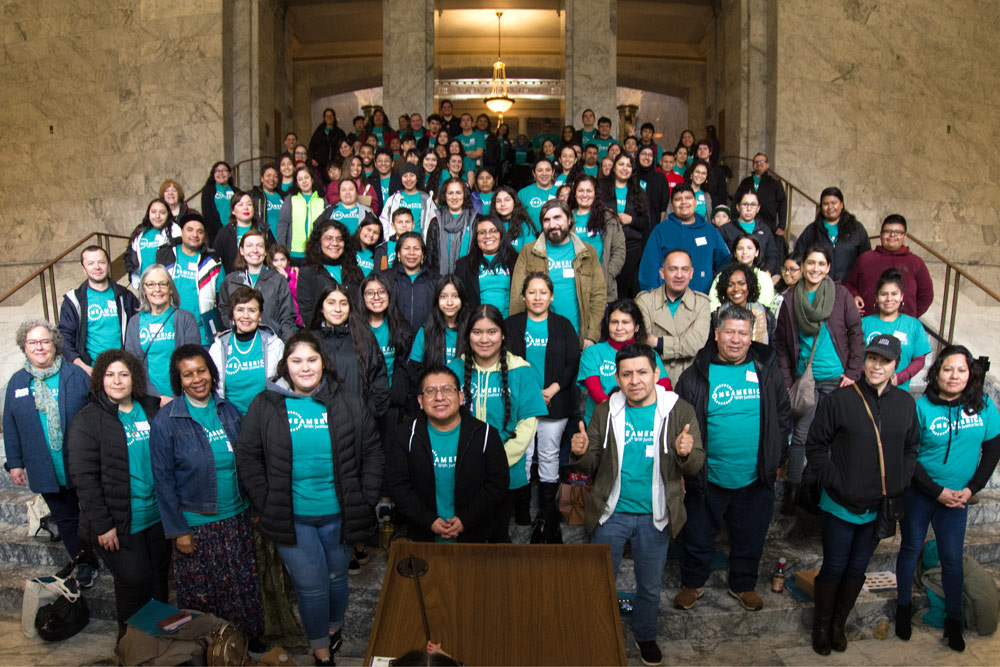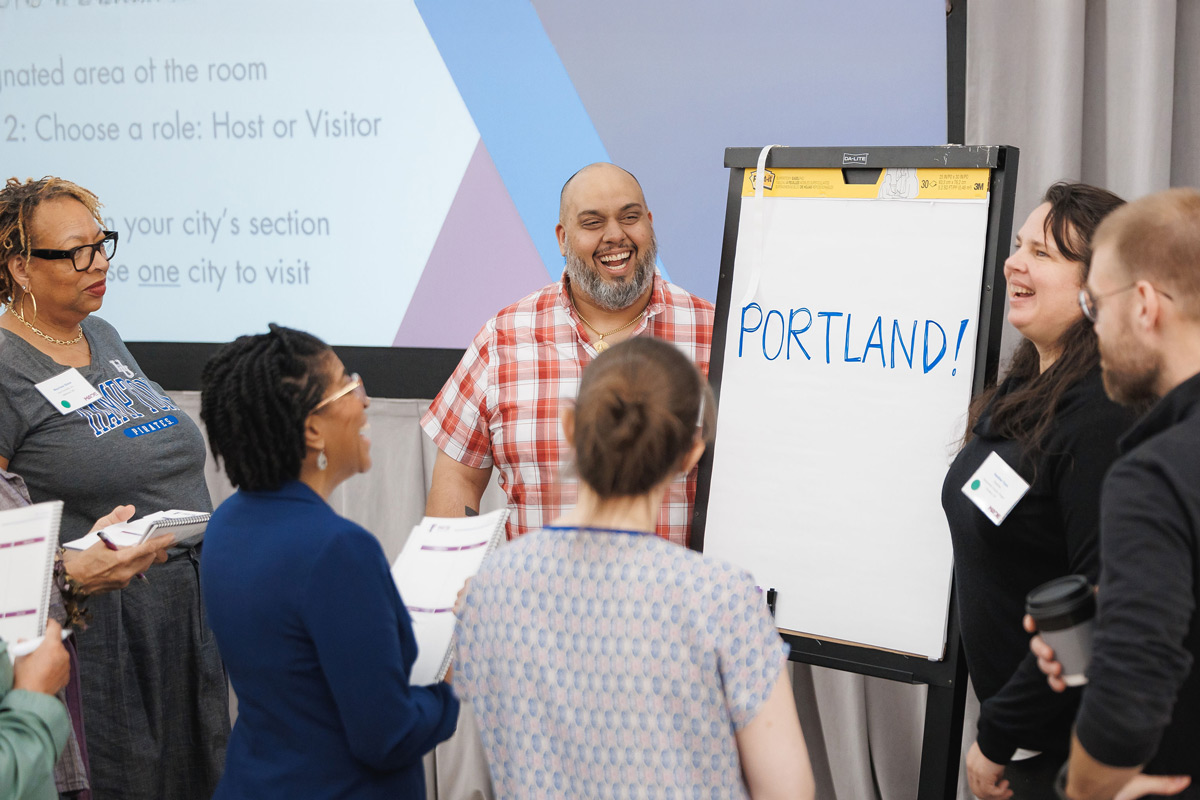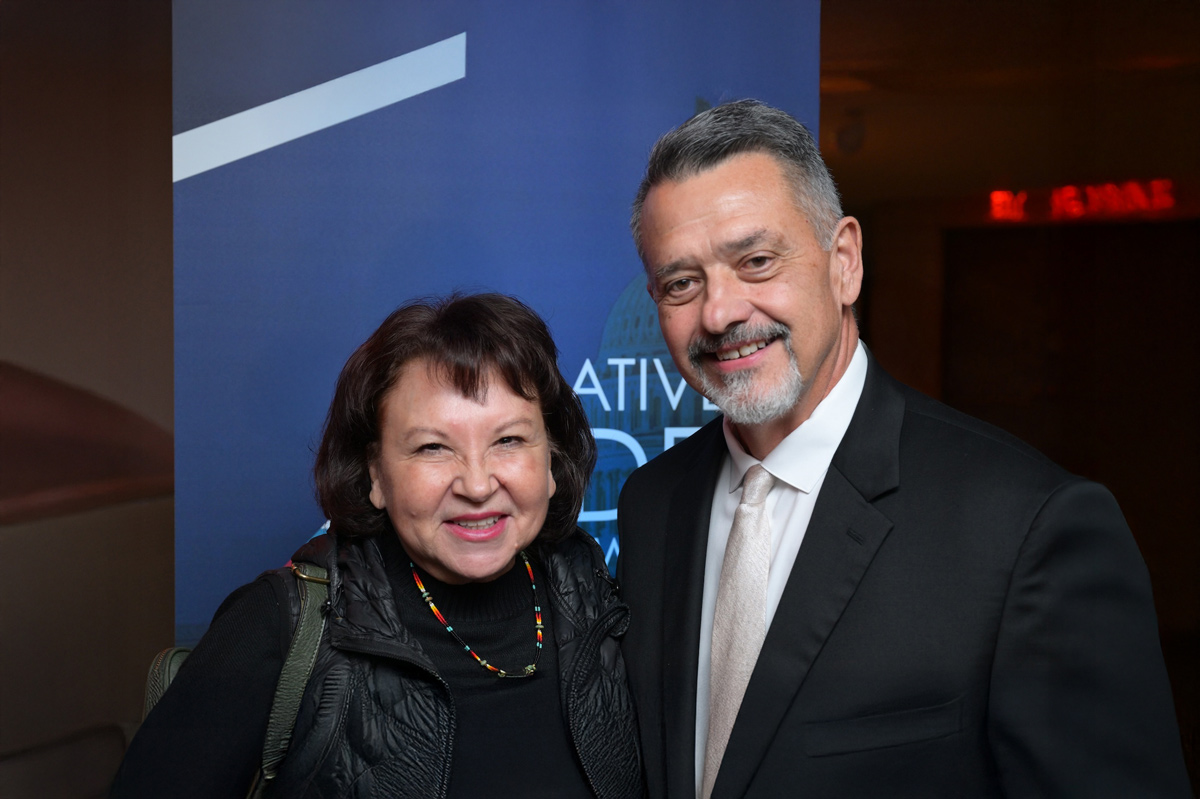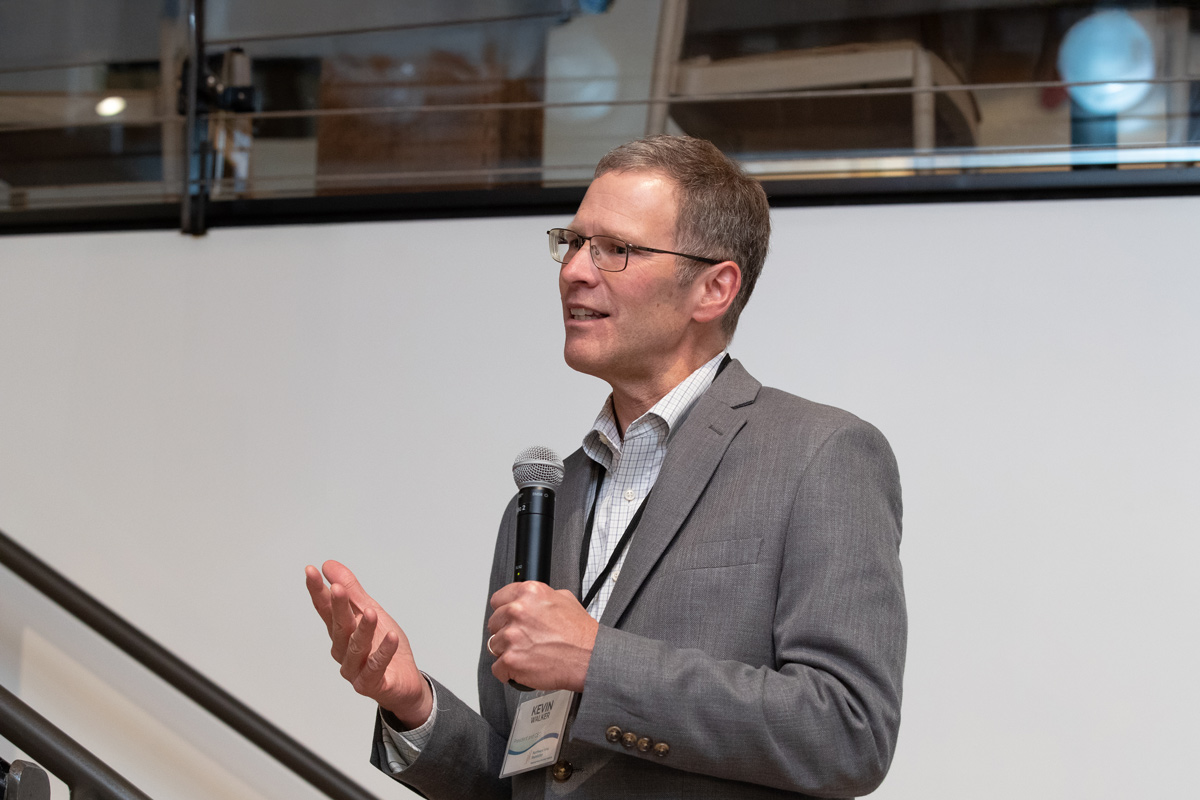“Immigrants contribute, immigrants are important, immigrants are our neighbors and friends. Immigrants are not the cause of this pandemic.”
Robin Engle
Director, OneAmerica
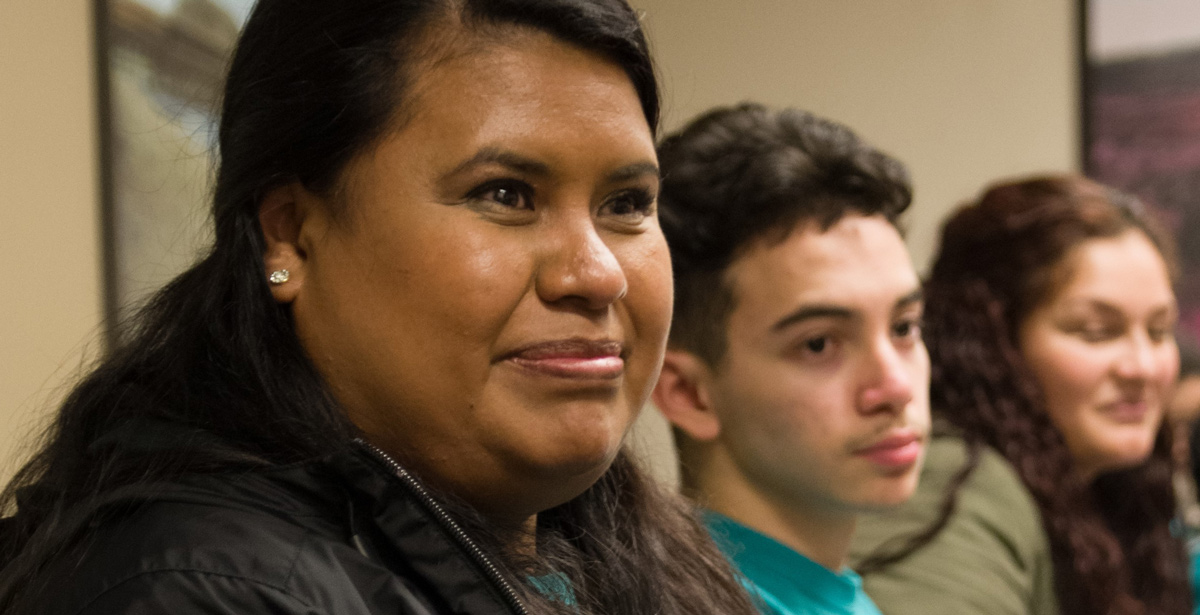
“We can create a positive path forward that recognizes the inherent dignity and justice that all humans deserve.”
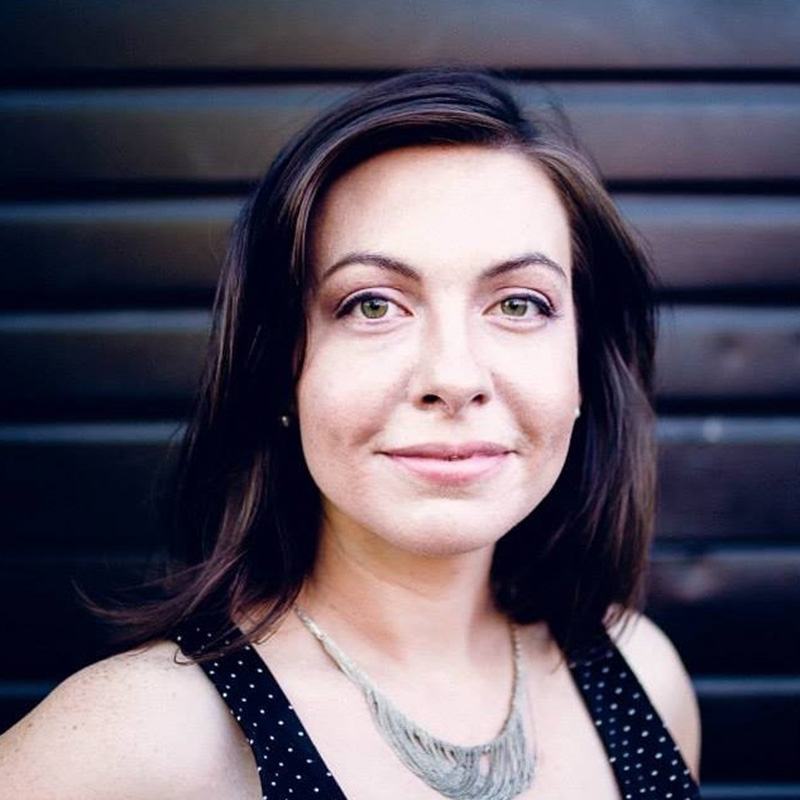
“We need major systemic change since undocumented members of our community are critical members of our society, of our economy. They’re our friends and neighbors.”
Robin Engle
Director, OneAmerica
HOW GRANTEES HELP COMMUNITIES PROSPER
Grantees That Are Building Equitable Economies
At Northwest Area Foundation, we're learning from our grantees building equitable economies. This story is the fourth in a series highlighting how our grantees are liberating the communities they serve from policies, practices, and beliefs that disadvantage them.
Four Bands Community Fund
This Native CDFI cultivates the partners, funding, and networks necessary for its communities on the Cheyenne River Sioux Reservation in South Dakota to prosper—growing good jobs, supporting small businesses, creating self-sufficiency, and bringing dreams to life for multiple generations.
Read the profileThunder Valley Community Development Corporation
Created by and for members of the Pine Ridge Reservation in South Dakota, this organization transforms lives and communities through its programming, partnerships, and pathways—building equitable economies where prosperity is defined by its Lakota communities and opportunity is shared by all with good jobs, thriving businesses, and vibrant cultures.
Read the profileIMMIGRANT DEVELOPMENT CENTER
IDC supports the wisdom, passion, and expertise of multiple cultures in the greater Fargo, ND – Moorhead, MN area. It creates strong partnerships throughout Fargo-Moorhead to liberate communities from policies and practices designed to disadvantage them, build the capacity of businesses and the economic skills within the immigrant and refugee population, and ultimately lead its clients to economic self-sufficiency.
Read the profileONEAMERICA
As the largest immigrant and refugee advocacy organization in Washington State, OneAmerica builds equitable economies by creating civic and political space for grassroots leaders to shape and reform critical policies, practices, institutions, and movements that impact the lives and build upon the unique assets of their community members.
Ujaama Place
Through high-context coaching and its community of support, Ujamaa Place works with young African American men in the Twin Cities metro area to make space for dreams by addressing traumas of personal and historic significance, racism, breaking cycles of defeat, overcoming barriers to stability, and helping participants thrive on their own terms.
Read the profile
